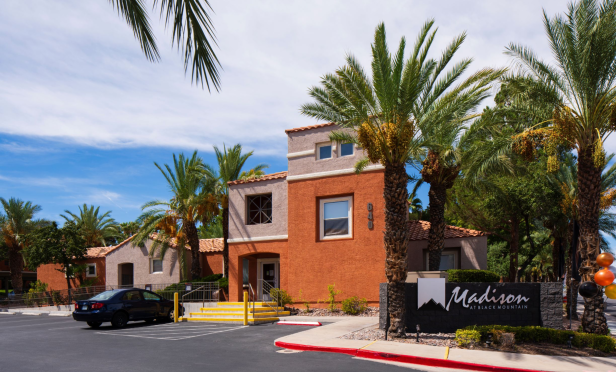 Investors are finding challenges finding acquisition opportunities in Las Vegas. Last year, the Las Vegas market grew in popularity, thanks to local economic and job growth and better returns for investors. The increased competition has quickly led to compressed cap rates in the market, making it difficult for investors to get the returns they are expecting.
Investors are finding challenges finding acquisition opportunities in Las Vegas. Last year, the Las Vegas market grew in popularity, thanks to local economic and job growth and better returns for investors. The increased competition has quickly led to compressed cap rates in the market, making it difficult for investors to get the returns they are expecting.
“Relative to what we've seen out there, we cast a fairly wide net when identifying investment opportunities,” Eytan Peer, president of acquisitions at Oak Residential Partners, tells GlobeSt.com. “Even still, the market remains extremely competitive. In the past couple years we've seen a compression of cap rates fueled by tremendous amounts of acquisition capital coming into the market.”
Oak Residential Partners recently purchased the 124-unit Madison at Black
Mountain Apartments located in Henderson, Nevada, but it was only the firm's second acquisition in the market since late 2017, due in large part to rising competition. “Additionally, we're a national investment group – we track approximately 35-40 markets throughout the country and we're actively offering on deals in 12 markets at present,” adds Peer. “That level of activity has shifted our focus to specific opportunities at specific times.”
Aside from the difficulty finding deals, Las Vegas remains an attractive investment market, with a solid growth runway and stability. “Las Vegas remains the highest beta market in the country,” says Peer. “It acts as strong representation of the national and to some extent, global economy.” While the market is strong today, it was also one of the most affected by the last recession, and there is concern about how the market will perform in the next downturn. “There is always risk of a larger recession, but specific to the local economy, a large portion of the employment sector and the health of market is still tied to construction,” adds Peer. “Given what happened during the last downturn, this was one of our initial concerns. But the diversification and variability in Las Vegas's market today has insulated that risk substantially.”
Today, Las Vegas is a much different market that it was in 2008. Out of the recession, Las Vegas has seen new industry growth and organic economic growth. “The major developments currently being built are funded by far more securitized capital sources than they previously were,” says Peer. “The concern of these developments remaining unfinished, is substantially mitigated due to this dynamic.”
© Touchpoint Markets, All Rights Reserved. Request academic re-use from www.copyright.com. All other uses, submit a request to [email protected]. For more inforrmation visit Asset & Logo Licensing.






